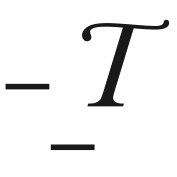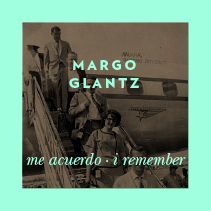Oliverio Coelho: A day in the life
I came to PN with Valentina and her two little dogs. The place is hidden away on the Uruguayan coast. It’s not exactly a secret spot. Nor is it completely forgotten. It’s a stretch of beachfront between Piriápolis and Punta del Este which grew slowly, in tune with the landscape. It’s a mostly empty area of marked beauty, like nearly all of Uruguay – man seems to be humbly in harmony with nature here. Gonzalo, one of Valentina’s childhood friends, moved to PN – a place-name abbreviation that will probably remain a sort of password, at the request of its residents, who prefer to safeguard the area from invasions of civilization and urban development. He bought a plot and a little while later started building tasteful mud houses, in the hopes of someday turning the place into a small libertarian hostel. The group of three homes with balconies overlooking a central courtyard has something extraordinary about it. That’s where the sun leans its beams at dawn. That’s where the moon shines at nightfall. The presence of a fourth home, to close the circle, would interrupt the path of the light. Though it’s just a few blocks from the sea, Gonzalo’s land borders mountains and fields. At least sensorially, the mountains and fields seep through the air and seem to converge. In the mountains past the houses, some friends of Gonzalo in the circus have set up camp. They’re rehearsing a show they’ll premier after New Year’s, in the main plaza of PN, which is no more than a rough patch of land with a few benches. The absence of a church comes as a relief. There are no signs of Jesus. Nor are there sandboxes or slides. One gets the sense that this plaza could be built anywhere in PN.
In the kitchen and on the balconies, the presence of the acrobats, trapeze artists, and clowns drinking mate and cooking, grants the place a somewhat Fellini-esque atmosphere. When the accordion sounds, in unison with a clarinet, I get the impression that the performance is about to begin and am reminded of Fellini’s La strada. The little dogs run back and forth, chasing cats or other dogs. From the top floor of the houses, where Gonzalo designed garden terraces, you can see the sea. PN’s ambience is, in short, the perfect place to welcome in the new year. The masks of nature are exposed. Such a pacific place skews the passage of time. Soon it’s the 31st. We get up at noon and after our ritual of mate and biscuits, we see in the sky the gloom of an oncoming storm. Past the few sparse sand dunes, the beach is deserted, its breadth cinematic, and the sea’s ferocity, that day, amidst rainclouds, would fit perfectly in a black-and-white Hitchcock film. It’s drizzling but I plunge in and have a swim anyway. Valentina, always afraid I’ll drown, prefers not to watch, and moves away, towards the only people on the beach just then: an old man and his son. They fish in silence, sitting before an increasingly angry sea. I join them. They smile as though they’ve been expecting me. The old man – of light blue, strangely angelic eyes, his chest bare and lined in wrinkles – his life story seems etched into that skin and knit into his placid look – offers me a swig of whiskey. He has a bottle of 18-year-old Chivas whose handle he grips forcefully, as though the drink held within it total calm in the face of the landscape’s rage. The bottle bobs half-way in a bucket, beside the bait and the fish hooks. I admit there’s no better plan than whiskey at the beach, with Valentina, who, like a secret agent, manages to get all the old man’s secrets out of him within a few minutes. After a little while we leave them. The storm unleashes itself. Father and son continue unmoved before the sea. I think that 2013 has begun in this very moment, with the storm, and the image of those two men who before the sea mark a mysterious send-off.
See also:
[Alejandra Costamagna] [Yuri Herrera]








